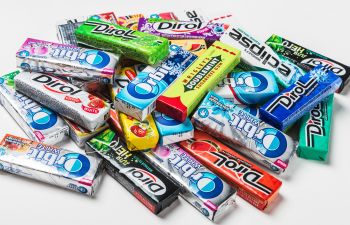Is Chewing Gum Bad for Your Teeth?

Chewing gum can have its benefits, but it also has its downfalls. Since not all gum is created equal you really should know what you’re getting yourself into the next time you decide to just pop any stick of gum in your mouth.
What Kind of Gum To Avoid
Some gum contains a lot of sugar, which is bad for your teeth because it attracts bad bacteria, feeds plaque, creates acid, and leads to an uptick in cavities.
What Kind of Gum Should You Chew?
Xylitol is a natural sweetener that is often found in “sugar-free” gum. Xylitol works opposite from sugar, starving bad oral bacteria, reducing plaque buildup and helping to prevent tooth decay.
Sugarless gum can also help produce more saliva, which can flush away bacteria for people who suffer from chronic dry mouth.
Who Should Avoid Gum?
Gum can take a lot of muscles to chew. If you have TMJ or jaw pain, chewing gum isn’t recommended because it can make your symptoms worse. Chewing gum, even if it’s just for a few minutes, can easily lead to TMJ or headache flareups.
If you want to enjoy the benefits of xylitol but chewing gum isn’t a good option, you may want to consider lozenges or sprays instead. You can typically buy them at local health food stores.
To Chew or Not To Chew
The next time you reach for your favorite gum at the checkout line, be sure to read the label. You want to make sure you’re doing right by your teeth.
For more tips on how to maintain healthy teeth and gums, visit the professional and friendly staff of Dental Care Center at Kennestone today.
Posted on behalf of Dental Care Center at Kennestone







